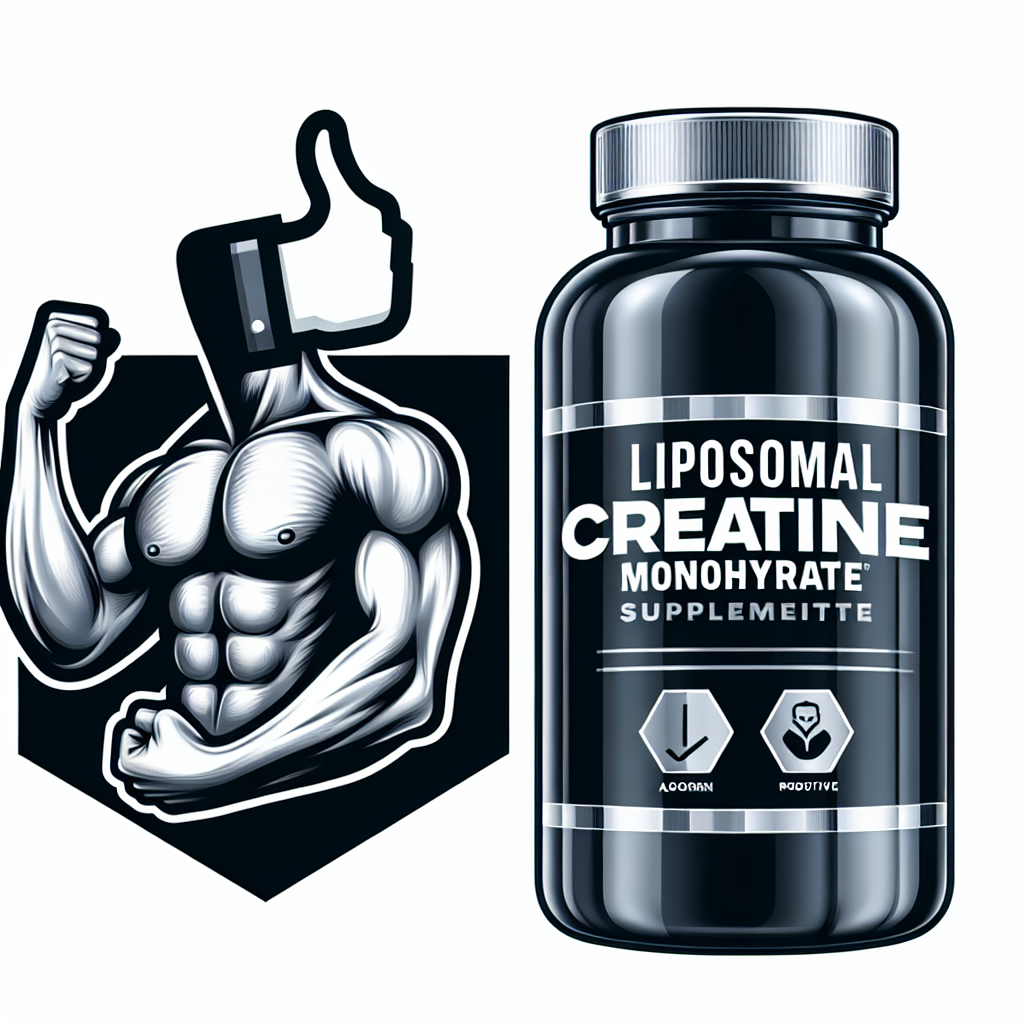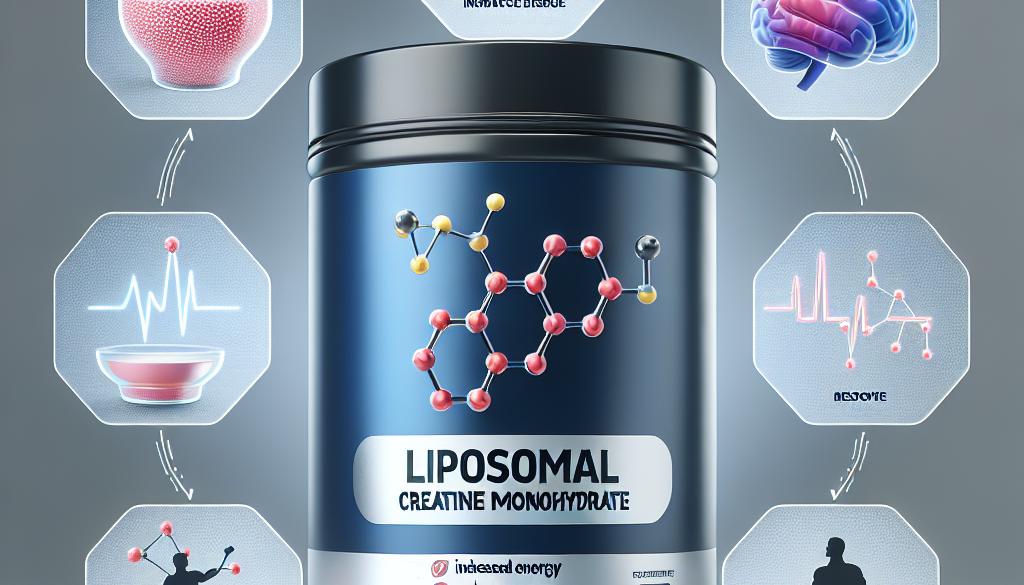Is Liposomal Creatine Monohydrate Good?
-
Table of Contents
- Liposomal Creatine Monohydrate: Enhancing Athletic Performance
- Understanding Creatine Monohydrate
- The Emergence of Liposomal Technology
- Liposomal Creatine Monohydrate: The Next Generation?
- Research and Case Studies
- Comparing Liposomal Creatine Monohydrate to Traditional Forms
- Who Can Benefit from Liposomal Creatine Monohydrate?
- Conclusion: Is Liposomal Creatine Monohydrate Worth It?
- Explore ETchem’s Protein Products
Liposomal Creatine Monohydrate: Enhancing Athletic Performance

Creatine monohydrate has long been a staple supplement among athletes and fitness enthusiasts for its ability to enhance performance and aid in muscle growth. However, with the advent of liposomal technology, the question arises: Is liposomal creatine monohydrate an even better option for those looking to maximize their physical potential? This article delves into the science behind liposomal creatine monohydrate, its benefits, and whether it stands up to the hype.
Understanding Creatine Monohydrate
Creatine is a naturally occurring compound found in small amounts in certain foods and produced by the body. It plays a crucial role in the production of energy during high-intensity, short-duration exercises such as sprinting and weightlifting. Creatine monohydrate, the most researched form of creatine, has been shown to:
- Improve strength and power output
- Enhance muscle recovery
- Increase muscle mass
- Boost cognitive function
The Emergence of Liposomal Technology
Liposomal technology involves encapsulating nutrients within liposomes—tiny, spherical vesicles made from cholesterol and naturally occurring phospholipids. This encapsulation can potentially enhance the delivery and absorption of nutrients in the body. Liposomes protect the encapsulated nutrient from degradation in the digestive system and improve its bioavailability.
Liposomal Creatine Monohydrate: The Next Generation?
Liposomal creatine monohydrate is a form of creatine that has been encapsulated in liposomes. The theory behind this technology is that it could further enhance the already well-documented benefits of creatine monohydrate by improving its stability and absorption rate. Here are some potential advantages:
- Increased absorption and bioavailability
- Reduced gastrointestinal discomfort
- Enhanced stability of creatine in the digestive tract
- Potentially lower effective dosages due to improved uptake
Research and Case Studies
While the concept of liposomal creatine monohydrate is promising, research on its efficacy is still in the early stages. Some studies suggest that liposomal encapsulation can indeed improve the bioavailability of certain supplements, but direct research on liposomal creatine is limited. Case studies and anecdotal evidence from athletes who have tried liposomal creatine monohydrate report positive experiences, but more scientific evidence is needed to draw definitive conclusions.
Comparing Liposomal Creatine Monohydrate to Traditional Forms
When comparing liposomal creatine monohydrate to its traditional counterpart, it’s essential to consider factors such as cost, convenience, and scientific backing. Traditional creatine monohydrate is cost-effective, widely available, and supported by decades of research. Liposomal creatine monohydrate, while potentially more effective in terms of absorption, is typically more expensive and less researched.
Who Can Benefit from Liposomal Creatine Monohydrate?
Liposomal creatine monohydrate may be particularly beneficial for individuals who:
- Experience gastrointestinal issues with regular creatine monohydrate
- Are looking for potentially faster results
- Prefer supplements with higher bioavailability
- Are willing to invest in a premium version of creatine
Conclusion: Is Liposomal Creatine Monohydrate Worth It?
In conclusion, liposomal creatine monohydrate presents an intriguing advancement in supplement technology, offering potential benefits in absorption and efficacy. However, due to the lack of extensive research, it remains a product that may be more suitable for those willing to experiment with new forms of supplementation. For most individuals, traditional creatine monohydrate remains a reliable and cost-effective choice. As with any supplement, it’s crucial to consult with a healthcare professional before making changes to your regimen.
Explore ETchem’s Protein Products
For those interested in enhancing their nutrition and supplement routine, ETchem’s protein products are worth considering. ETchem offers a variety of high-quality protein supplements, including various types of collagen that cater to different needs and preferences. Their products are designed to support muscle growth, recovery, and overall health.
About ETChem:
ETChem, a reputable Chinese Collagen factory manufacturer and supplier, is renowned for producing, stocking, exporting, and delivering the highest quality collagens. They include marine collagen, fish collagen, bovine collagen, chicken collagen, type I collagen, type II collagen and type III collagen etc. Their offerings, characterized by a neutral taste, instant solubility attributes, cater to a diverse range of industries. They serve nutraceutical, pharmaceutical, cosmeceutical, veterinary, as well as food and beverage finished product distributors, traders, and manufacturers across Europe, USA, Canada, Australia, Thailand, Japan, Korea, Brazil, and Chile, among others.
ETChem specialization includes exporting and delivering tailor-made collagen powder and finished collagen nutritional supplements. Their extensive product range covers sectors like Food and Beverage, Sports Nutrition, Weight Management, Dietary Supplements, Health and Wellness Products, ensuring comprehensive solutions to meet all your protein needs.
As a trusted company by leading global food and beverage brands and Fortune 500 companies, ETChem reinforces China’s reputation in the global arena. For more information or to sample their products, please contact them and email karen(at)et-chem.com today.




